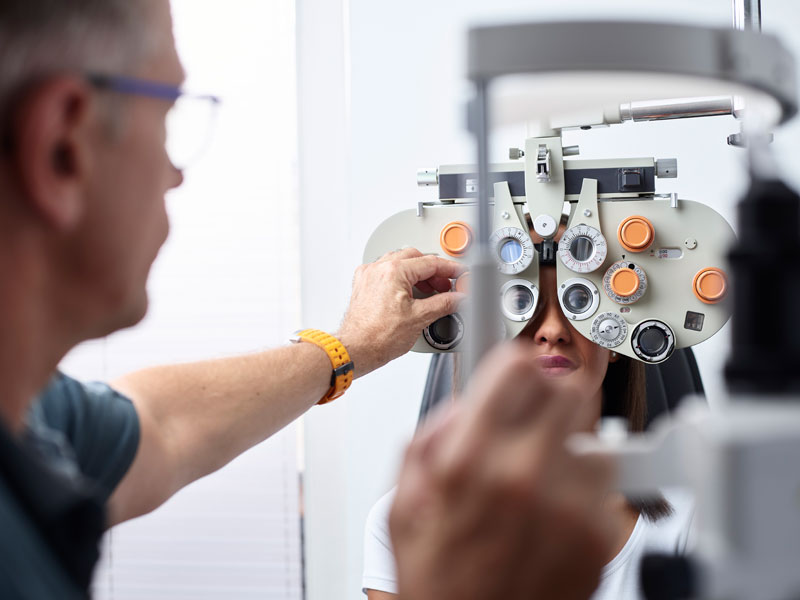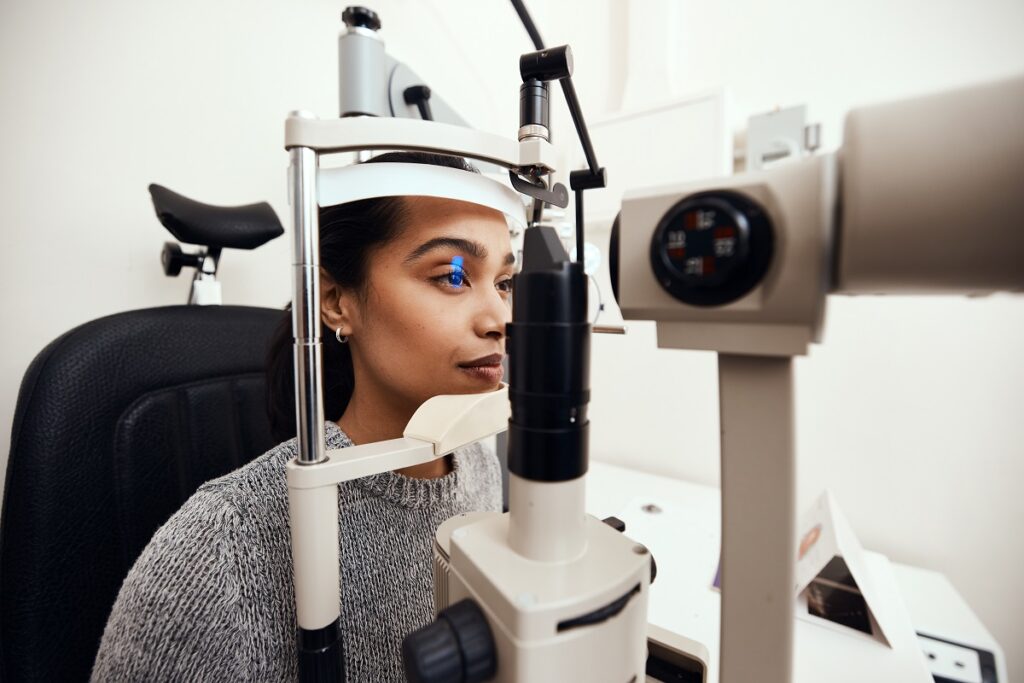Comprehending the Comprehensive Function of an Optometrist in Modern Eye Treatment
With advancements in innovation and a raising focus on preventative care, optometrists are indispensable in detecting and taking care of chronic eye problems, while likewise engaging in very early disease discovery. Exactly how do these obligations intersect with their duty in promoting total eye health, and what does this mean for individual outcomes in a collective health care environment?
Expanded Range of Practice
In recent years, the duty of optometrists has actually evolved substantially, with lots of specialists now accepting an increased scope of method that prolongs past typical eye examinations. Their duties currently encompass a vast range of services, consisting of prescribing medications for ocular conditions, managing persistent eye illness, and executing small medical treatments.
Even more, eye doctors are now much more involved in collaborative care, working carefully with eye doctors, medical care physicians, and other medical care professionals to make certain holistic patient care. This interprofessional cooperation is crucial in managing intricate cases that need a multidisciplinary strategy. Furthermore, optometrists are playing a critical role in public wellness efforts, such as vision testings and eye health education and learning, targeted at boosting neighborhood wellness end results.
The expanded extent of method for eye doctors not just boosts their capability to give extensive care yet also resolves the expanding need for accessible and efficient eye treatment services, adding to general medical care improvements.
Early Disease Discovery
Very early discovery of eye illness is increasingly ending up being a focal factor in the expanded duty of eye doctors. As primary eye care service providers, eye doctors are distinctively positioned to determine very early indications of ocular problems such as glaucoma, macular degeneration, diabetic retinopathy, and cataracts. This pivotal function is vital, as early diagnosis can considerably enhance the administration and prognosis of these conditions, potentially stopping vision loss and enhancing individual results.
Eye doctors use detailed eye evaluations to detect refined adjustments in vision and eye health and wellness. The capacity to acknowledge very early signs of systemic health concerns, such as high blood pressure and diabetes, via ocular indicators even more underscores the relevance of normal eye examinations.
Moreover, eye doctors play an important role in patient education, highlighting the value of regular eye evaluations as part of total wellness maintenance. By fostering a proactive approach to eye treatment, optometrists contribute considerably to public health and wellness, making certain diseases are captured and handled successfully before they can advance.
Advanced Diagnostic Techniques
Advanced diagnostic methods have reinvented the practice of optometry, allowing practitioners to identify and keep an eye on eye conditions with extraordinary precision. These advancements have actually transformed the optometric landscape, enabling more advanced assessment and intervention techniques. Technologies such as optical coherence tomography (OCT) offer high-resolution, cross-sectional images of the retina, facilitating early detection of conditions like glaucoma and macular degeneration. This non-invasive method has actually ended up being essential in contemporary optometry, offering detailed understandings right into retinal layers.
Another essential development is digital retinal imaging, which captures extensive sights of the retina utilizing high-definition video cameras. This modern technology is essential page in recognizing modifications in retinal framework gradually, therefore aiding in the management of problems like diabetic retinopathy. Aesthetic field screening, enhanced by computer-aided systems, enables specific mapping of a patient's area of vision, crucial in detecting and tracking glaucoma development.
Corneal topography, another noteworthy analysis tool, creates topographic maps of the cornea's surface area. This is specifically useful in suitable call lenses and preparing refractive surgery. These sophisticated analysis techniques jointly make it possible for eye doctors to give proactive, targeted care, guaranteeing better individual results and reinforcing their essential function in eye wellness monitoring.
Taking Care Of Chronic Eye Problems
Taking care of persistent eye problems is a foundation of optometric care that calls for a comprehensive understanding of numerous eye diseases and their long-lasting effects. Eye doctors play a critical duty in handling, monitoring, and diagnosing problems such as glaucoma, diabetic retinopathy, and age-related macular degeneration. These problems, if left neglected, can cause significant aesthetic disability or loss of sight, highlighting the critical value of ongoing treatment and management.
Optometrists employ a variety of analysis tools, consisting of optical comprehensibility tomography (OCT), visual area testing, and fundus digital photography, to examine the development of these persistent problems. By very closely keeping track of modifications in ocular health and wellness, eye doctors can change therapy strategies to mitigate illness progression. This might entail suggesting drugs, advising way of life modifications, or collaborating with ophthalmologists for surgical interventions when required.

Duty in Preventive Care
Preventative care is an essential facet of optometry that concentrates on maintaining eye wellness and avoiding the start of ocular conditions. Optometrists play a critical role in early detection and prevention, utilizing routine eye exams to recognize risk aspects and refined modifications in ocular health. Eye Doctor Optometrist. These evaluations are not just concerning vision improvement but encompass an extensive assessment of eye features and structures, making it possible for the identification of conditions such as glaucoma, cataracts, and macular degeneration at an early stage
In addition to diagnostics, eye doctors enlighten individuals on lifestyle options that promote eye health, such as appropriate nutrition, UV protection, and the relevance of normal eye examinations. They advise on the right use of electronic gadgets to avoid electronic eye stress, an expanding issue in the digital age. Optometrists also offer support on protective glasses for work and entertainment tasks, alleviating the risk of injury.
Preventative eye treatment encompasses systemic health and wellness issues that show up in the eyes, such as diabetes and hypertension. By collaborating with other medical care experts, optometrists add to all natural patient care, highlighting the interconnectedness of eye and systemic health and wellness. This positive technique is vital in safeguarding visual acuity and total wellness.
Verdict
Optometrists now occupy a pivotal function in contemporary eye care, defined by a broadened scope that includes identifying and managing persistent eye conditions, recommending drugs, and performing minor procedures (Opticore Optometry). Their experience in early illness detection is boosted by innovative analysis methods such as optical comprehensibility tomography and digital retinal imaging. By a knockout post emphasizing precautionary treatment and patient education and learning, optometrists add considerably to overall eye wellness, collaborating with other medical care professionals to make certain efficient and extensive individual end results

In addition to diagnostics, optometrists inform people on lifestyle choices that advertise eye health, such as correct nourishment, UV protection, and the value of routine eye exams.Preventative eye care expands to systemic wellness issues that materialize in the eyes, such as diabetes and high blood pressure.Optometrists now inhabit a crucial function in contemporary eye treatment, defined by a broadened extent that includes diagnosing and handling persistent eye problems, recommending drugs, and executing small surgical procedures.